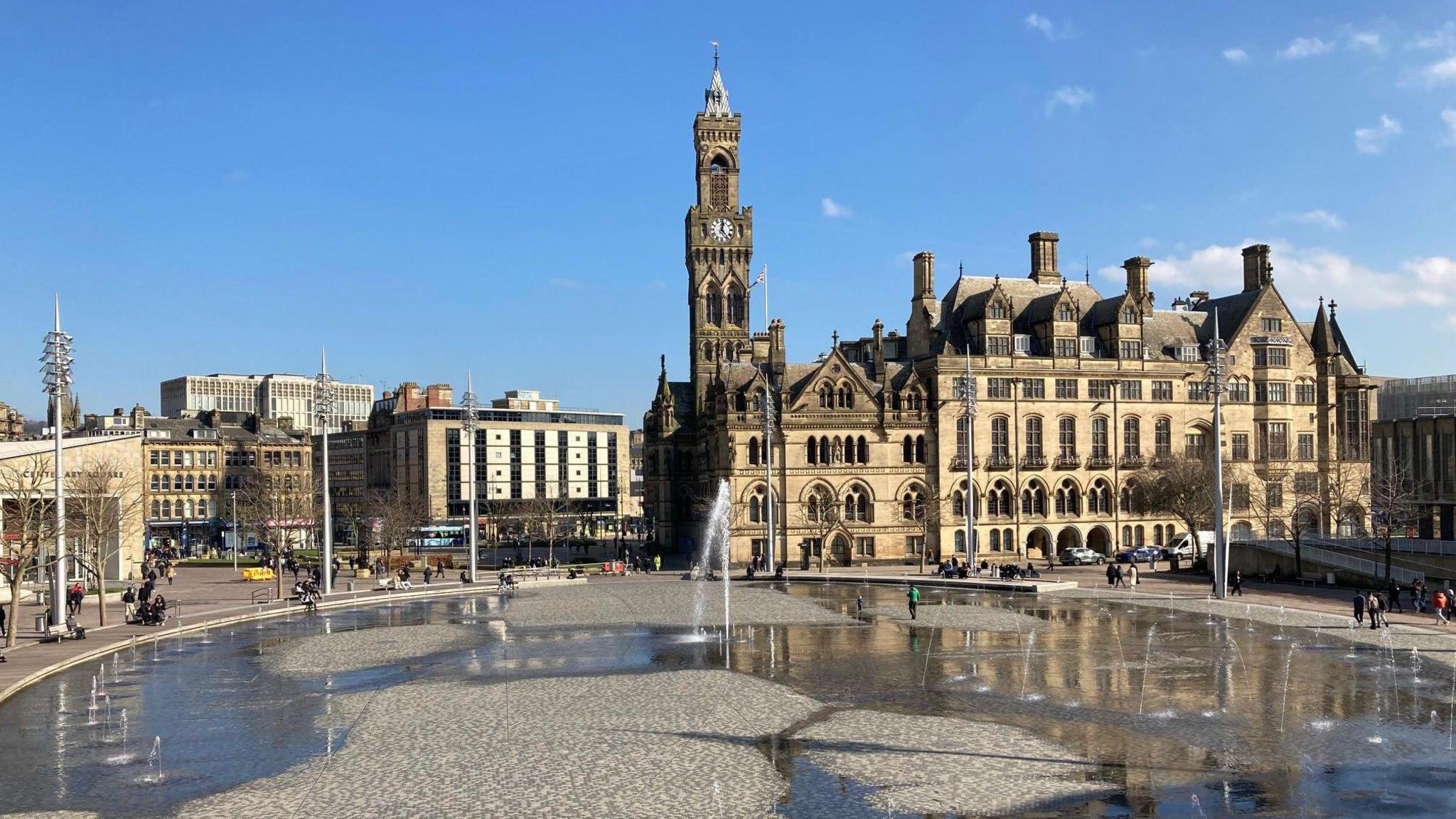Clean Air Zone health impact 'encouraging' - study
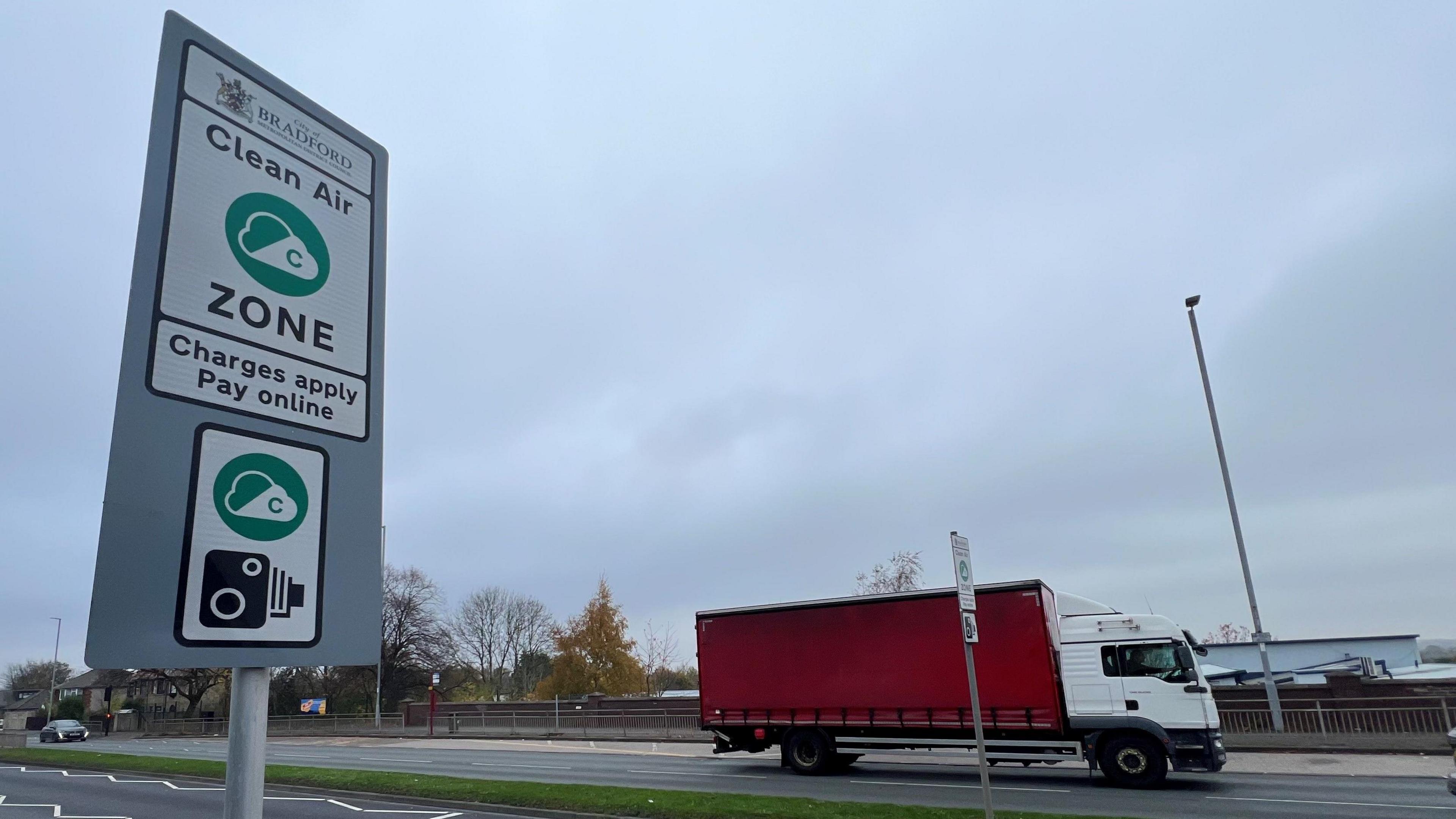
Researchers suggest public health has improved since the Clean Air Zone was brought in
- Published
A study into Bradford’s Clean Air Zone (CAZ) has found “early evidence” of improvements in public health that could save the NHS money.
The report by Born in Bradford (BiB), a research programme tracking city residents' health, found that one year after the launch of the CAZ, GPs were seeing nearly 600 fewer respiratory patients each month on average.
Report author Prof Rosie McEachan said the indications were “hugely encouraging” but cautioned they were “interim findings”.
The full research will take another two years to complete.
The CAZ, which was introduced by Bradford Council in September 2022, resulted in daily charges for the most polluting commercial vehicles entering parts of the city.
It formed part of a wider clean air plan for the city, which included other policies, such as providing grants to the likes of businesses and taxi drivers to upgrade vehicles.
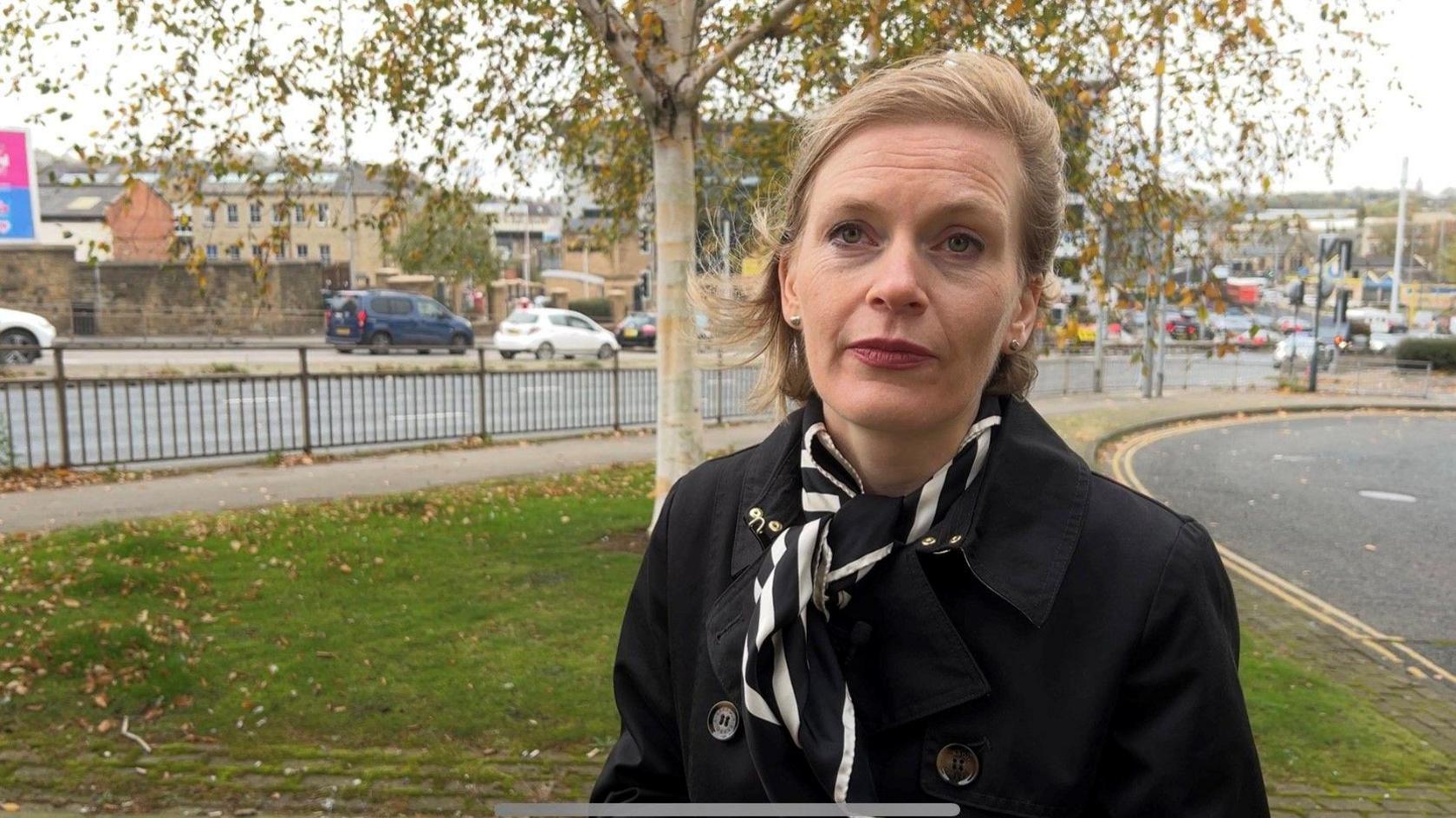
Prof Rosie McEachan said the findings were "hugely encouraging"
The study compared a two-year period between 2018 and 2020, before the plan was introduced, with a similar timescale between 2021 and 2023.
It then analysed the number of patients seeking help from their GP or emergency departments for respiratory or cardiovascular problems.
The study found there were 598 fewer GP visits by patients with respiratory health problems per month, and 134 fewer monthly visits by patients with cardiovascular issues.
Initial findings estimated the reduced burden on GP appointments could be saving the NHS more than £30,000 each month.
Prof McEachan said the findings were “very significant” for a city like Bradford that “historically has high levels of respiratory and cardiovascular ill health”.
She said: "By improving pollution levels, reducing pollution, we’re seeing this knock-on improvement in the health of the population and that’s resulting in reduced healthcare burden for our very hard-pressed NHS doctors and nurses who are on the front line."
However, Prof McEachan stressed they were “interim findings” and that because some of the research coincided with the Covid-19 pandemic the team would need to wait “another couple of years” before they can “fully disentangle” the impact of clean air policies.
Earlier research from BiB had suggested air pollution could be a factor in 35% of visits to GPs with breathing issues and 49% of visits to A&E.
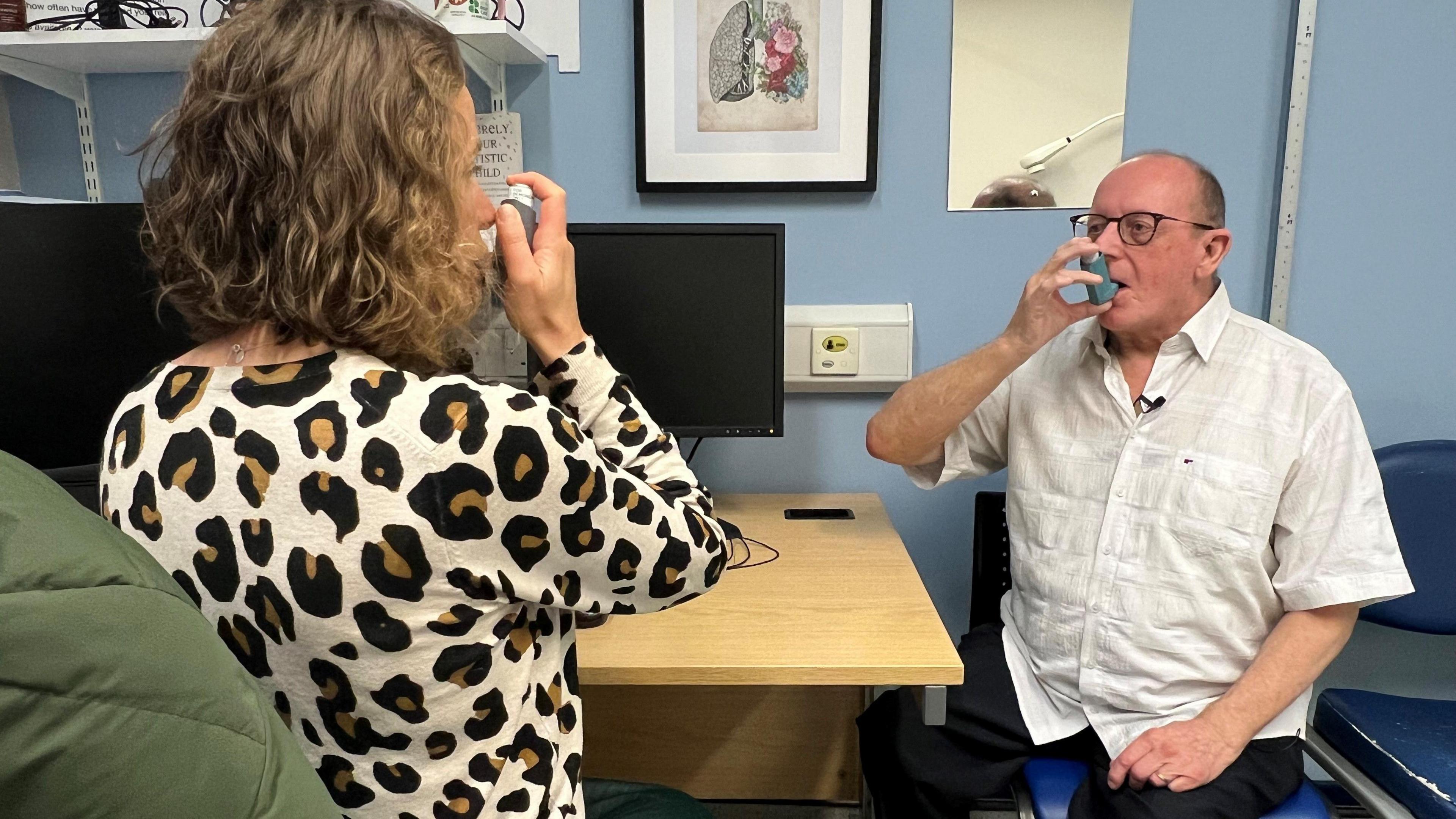
The study found there was a 25% drop in GP appointments linked to respiratory issues
Bradford GP and West Yorkshire respiratory lead Dr Katherine Hickman said spikes in air pollution could be “absolutely debilitating” for some patients.
She said: “They’re getting more symptoms, they’re having to use their reliever inhaler more and more, to the point that they present acutely at their GP for a course of steroids, or worst-case scenario, ending up in A&E.
“We know that if we reduce air pollution it has benefits across the board, but it really does benefit those patients whose symptoms are triggered by air pollution."
Bradford Council leader Susan Hinchliffe said: “The Clean Air Zone is proving that we can improve air quality and our residents are staying healthier as a result."
Listen to highlights from West Yorkshire on BBC Sounds, catch up with the latest episode of Look North or tell us a story you think we should be covering here, external.
Related topics
Related stories
- Published22 September 2023
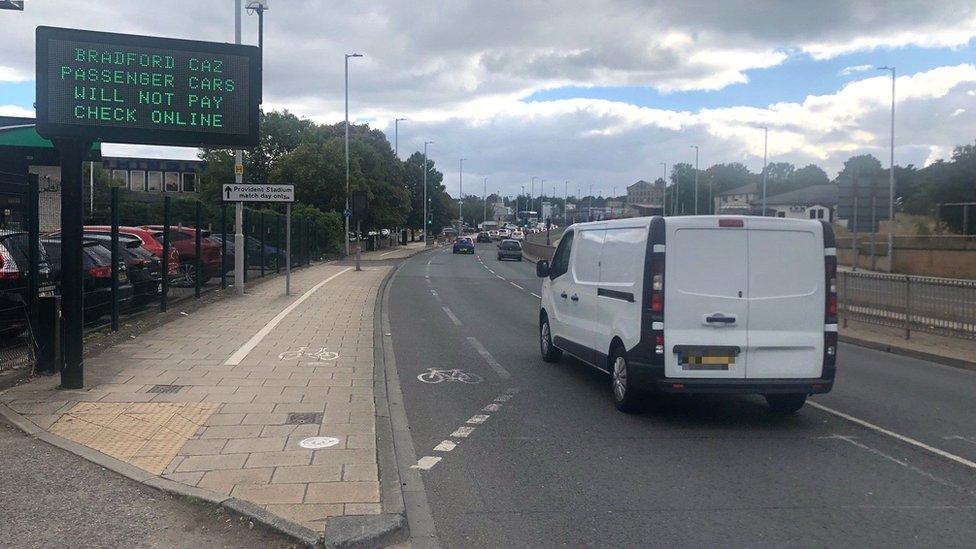
- Published28 April 2023

- Published28 August 2024
